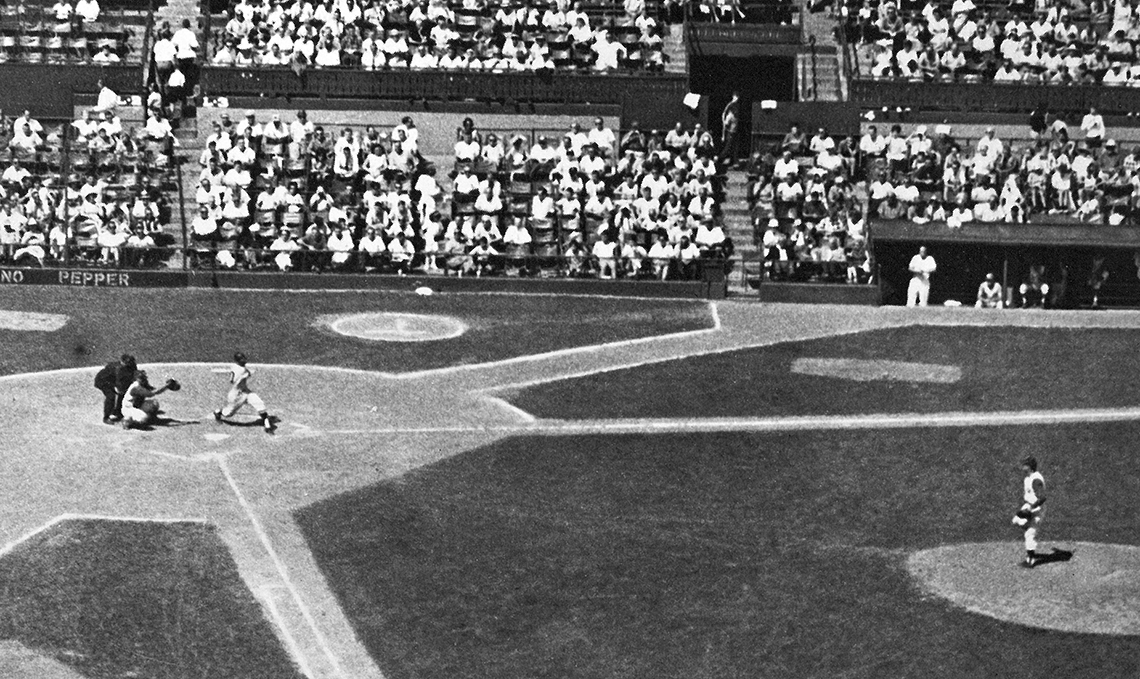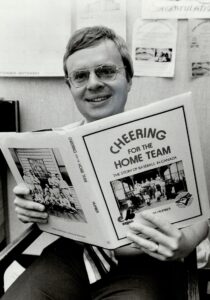
By Pedro Ambrosio
Known today by some as the “premier” of Canadian baseball, Bill Humber’s story started at an early age as a simple passion for the sport. He was about 8-years-old when he went to his first baseball game. “It left a strong impression on me. When you’re a kid and you go to a sporting event, you’re always kind of overwhelmed by the sights, the sounds, the smells and the people that are there.”
Humber is a 72-year-old baseball historian, writer, and founding director of the Eco-Seneca Office. However, his credentials go way beyond that. Besides the 12 published books and the 41 years worked at Seneca College, he is the first academic to join the Canadian Baseball Hall of Fame and a proud holder of the Order of Canada insignia.
HIS HISTORY WITH THE BASEBALL HISTORY

According to Humber, the jump from a passion to academic interest came from the realization of how baseball plays a role in North American culture.
In his studies, he acknowledges that the origins of baseball are still very debatable. Some say it began in Cooperstown, New York in 1839, but others like him know that similar sports were played even in Beachville, Ontario in 1838 or St. John, New Brunswick in 1793. That was the fact that began his intellectual pursuit to unravel the history of baseball in Canada.
“So, clearly the game evolved. The game was not invented or created, that’s the most important thing we can say about it.”

THE FIELDS BEYOND HIS FIELD
But it wasn’t just the baseball that appealed to him. He’s also been a huge soccer fan. So much, that he’s even writing a book about it with his son, Brad Humber ‒ who’s actually the president of the Red Patch Boys, the supporters club for the Toronto FC. It’s still in development, but the book is expected to be published by St. Johann Press.
“The book is called “Soccer Triumphant” and it’s focused on North America. Our argument is that soccer is now part of the sporting mainstream of North America. You couldn’t have said that 25 or 30 years ago. It’s been there and played for a long time, but you certainly wouldn’t put it in the same category as the other major sports. And I think it’s fair to say now that, if anything, it’s as popular as hockey – certainly in the United States it’s probably even more popular than hockey.”
“It may never be as popular as basketball and football. But you know, it’s still up there as a kind of a major theme of people’s interest in sports.”
CONTRIBUTING TO MORE THAN SPORTS
The history of sports in Canada is undeniably thankful for Humber’s contributions. Even his nomination to the Order of Canada is in reference to that. But, his contributions to society stretch beyond only sports. He is also an environmentalist responsible for many of Seneca’s sustainability initiatives.
Two years after getting his master’s degree in environmental studies from York University, Humber started working at Seneca College as a department chair, and the director of Eco-Seneca Initiatives. As he puts it himself, he was responsible for “embedding an environmental imperative in our academic programs.”
“The approach I took was that, regardless of what program you’re in, a student should leave the college at least with an understanding of issues beyond the immediate program. In other words, they should have some awareness of human rights issues, good written communications, some understanding of health and safety issues and, I argue and continue to argue that, they should also have an awareness of environmental issues.”
Along the years, Bill also became a member co-chair of the Sustainable Seneca Committee and created the Green Citizen program.
“My job was to constantly harp on these issues, raise these issues, bring them forward, integrate them within the existing curriculum.”

A MAN OF AWARDS AND ACCOMPLISHMENTS
If the Order of Canada and the Canadian Baseball Hall of Fame titles aren’t enough, here are some of his other titles and awards.
- He has been listed in the Canadian “Who’s Who” for over 25 years;
- In 2012, he received Canada Mortgage and Housing Corporation’s national award for educational leadership in sustainability;
- He was president of Valleys 2000 in Bowmanville, which constructed a fish passageway on the Bowmanville Creek;
- He is Secretary for the Jury Lands Foundation, which re-purposes lands and buildings in Clarington, Ontario that were once used as prisons for prisoners-of-war during World War II ‒ also known as “Camp 30”;
- He is a former selector for Canada’s Sports Hall of Fame and the Clarington Sports Hall of Fame;
- Recipient of a Queen’s Golden Jubilee Medal awarded in 2003;
- In 1989, he was the specialist behind the “Let’s Play Ball: Inside the Perfect Game” exhibit at the Royal Ontario Museum, which celebrated 150 years of Canadian baseball history.
- He founded Seneca’s course “Baseball Spring Training for Fans”, which continues until this day.
William Arthur Humber is an impressive man who contributed a lot to Canada. Not only by researching baseball and sports, but also by teaching and promoting a lot of important initiatives to his community – be it at Seneca College or Bowmanville.

Be the first to comment